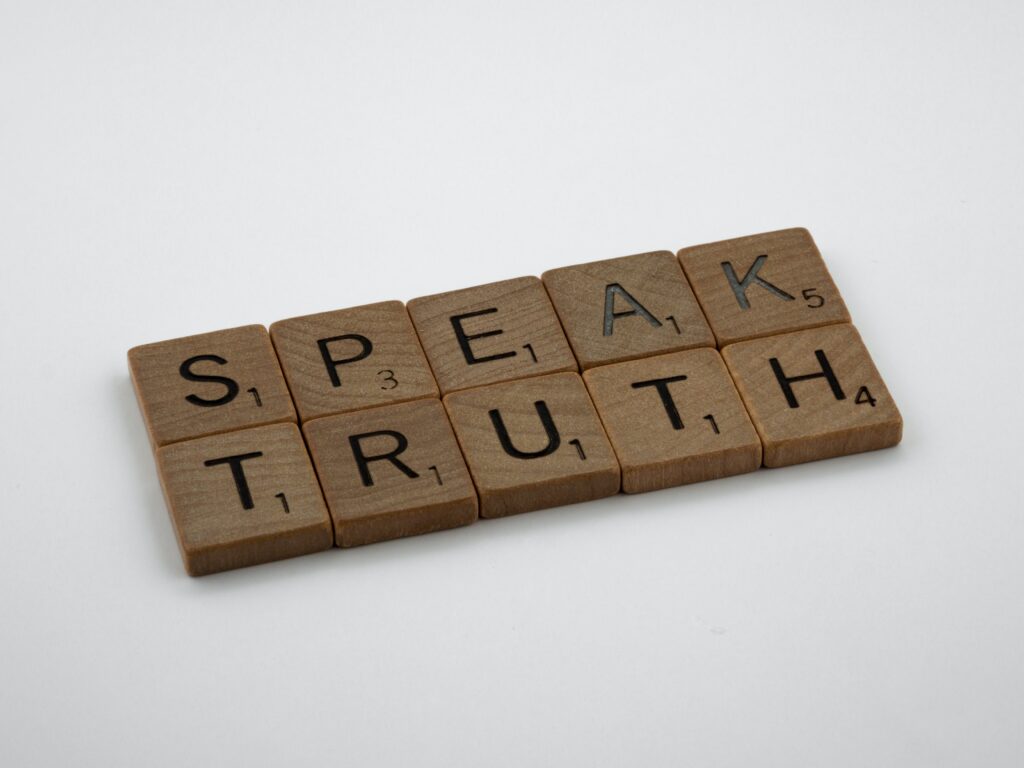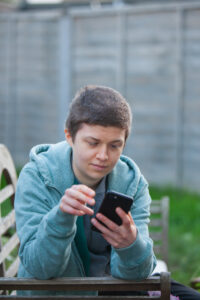"Stick with the truth, it's easier to remember."
Has anyone ever told you that? I find the claim fascinating. I think it’s the psychopathy; we Cluster B folks seem to lack a certain mental “friction” that other neurotypes have when it comes to fabrication.
Which does make me a fluid storyteller, a talent I’ve been complimented on many times. I can literally keep making things up, without pause and with what I’ve been told is remarkable conviction and imagination, until my audience gets bored or my voice gives out.
The truth for me...
But the truth… ah, it’s a complicated thing. To tell “the truth”, I first have to lay out in my head what happened, and in what order. Then I need to figure out which parts are relevant to my audience and which should be trimmed for brevity. Then I need to figure out how to accurately transfer the concepts in my head into theirs.
It’s so much easier to just open your mouth and let whatever you want to have happened tumble out. And since it’s what you wanted to have happen, it’s nice and easy to remember. Your brain likes hanging on to concepts it finds agreeable.

Lies and stories can be flexible and comfy. Fiction allows you to fill in any odd gaps or awkward corners to make a nice, smooth, pretty whole.
Hardly surprising that so many people take refuge in delusions.
Because the truth, facts, reality… they’re all complex and messy concepts that often can’t fit into a human brain. Everything we experience is a hallucination intended to approximate the signals we receive from our senses. We can only perceive a fraction of environmental data, and we ignore or rapidly forget much of what we do perceive.
How do you even find “truth” when you are a painfully finite entity in a vast and astonishingly complex existence?
Let's investigate...
To begin with, you give up. While you may be able to argue for the existence of an underlying reality, and therefore the existence of objective truth, humans can’t reach it. Impossible. We are far too limited to get even close.
Next, you keep trying anyway. Fully aware that you will never reach your goal. Just because a goal is unobtainable does not mean it isn’t worthwhile.
Yes, we will never reach a firm reassuring “truth”. We’re lucky to even reach a reasonably accurate seeming consensus. But to make wise decisions we must learn from experience – not only our own, but others. We’re a social species, after all. No use reinventing the wheel, etc.
And to learn from our experiences requires us to evaluate those experiences. Without thoughtful inspection, you cannot judge. And to evaluate requires accurate models of what happened, and why, and how it connected to everything else. And to construct models we must have an approximation of how the universe works. The more accurate the better.
So we accept the impossibility of truth and the importance of truth, and celebrate this seeming conundrum as yet another example of how reality is too vast and varied to be pinned down by the human mind.
Even if fabrications are easier – easier to tell, easier to accept, easier to remember – they are poor guides. Living by lies means being unable to learn. Unable to grow. Unable to truly connect, either with others or with our authentic selves.
Tell the truth, as best you can, because without it we are all adrift in whirling space without anything to stand on. We need to come together, pool data and analysis, and peer-review each other’s work to build the best way forward we can.
My favourite part of Quaker Faith And Practice is right near the start, in Advices And Queries. Number 17, to be precise.
“Do you respect that of God in everyone though it may be expressed in unfamiliar ways or be difficult to discern? Each of us has a particular experience of God and each must find the way to be true to it. When words are strange or disturbing to you, try to sense where they come from and what has nourished the lives of others. Listen patiently and seek the truth which other people’s opinions may contain for you. Avoid hurtful criticism and provocative language. Do not allow the strength of your convictions to betray you into making statements or allegations that are unfair or untrue. Think it possible that you may be mistaken.”
Quaker Faith & Practice - Advices & Queries 17 Tweet
In summary...
All any of us have is an approximation. A tiny, blurry picture of one facet of reality. But if we pool them all together, with care and respect, we can build a much better approximation than we would ever manage alone.
Go forth and seek the unobtainable truth, friends.

Lee Heywood
MBS Volunteer






